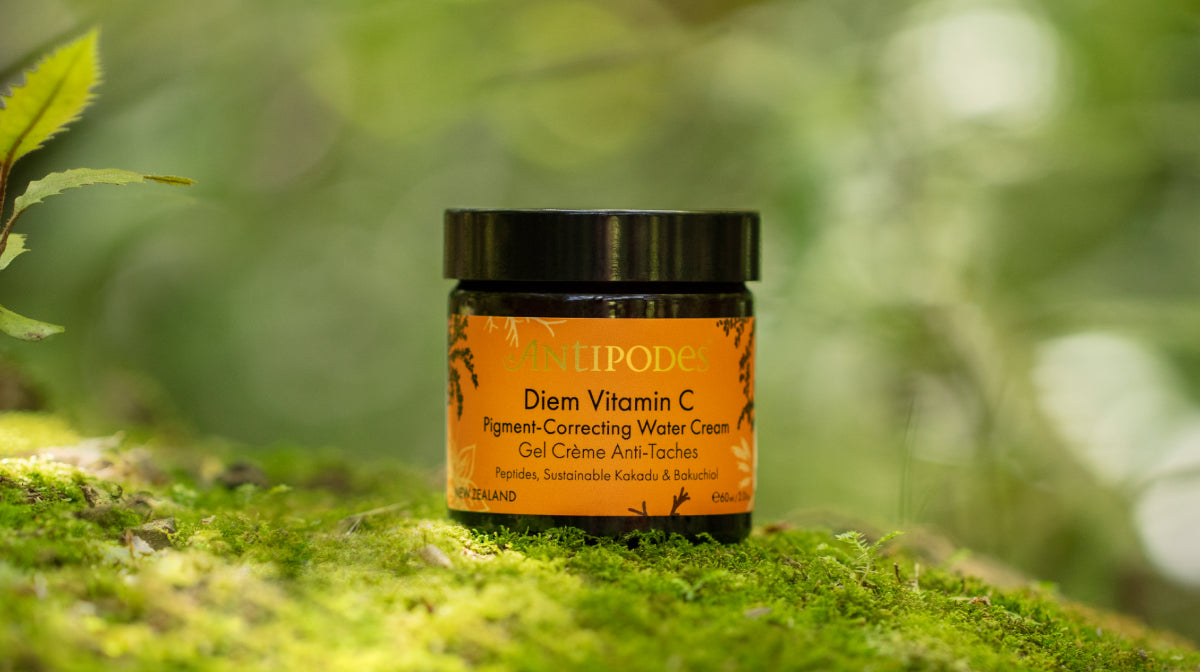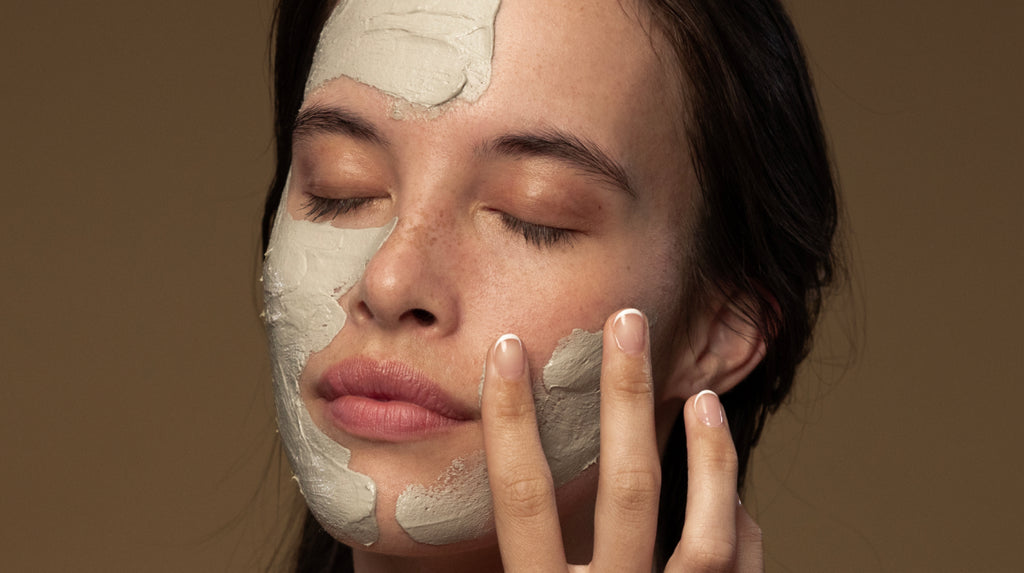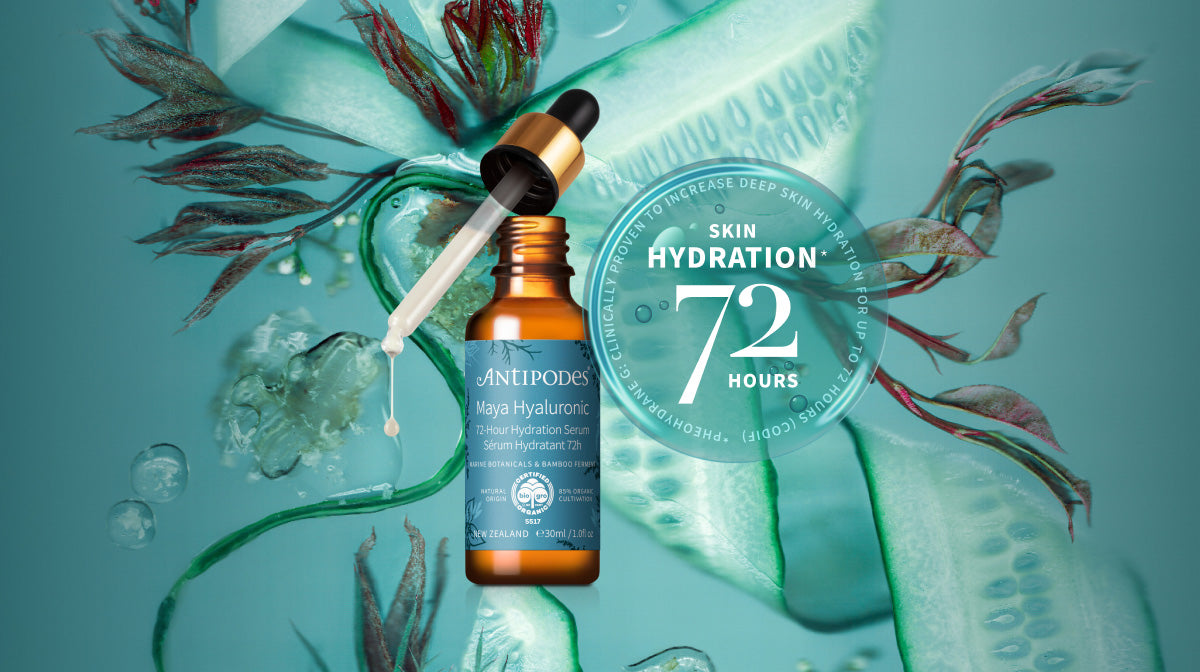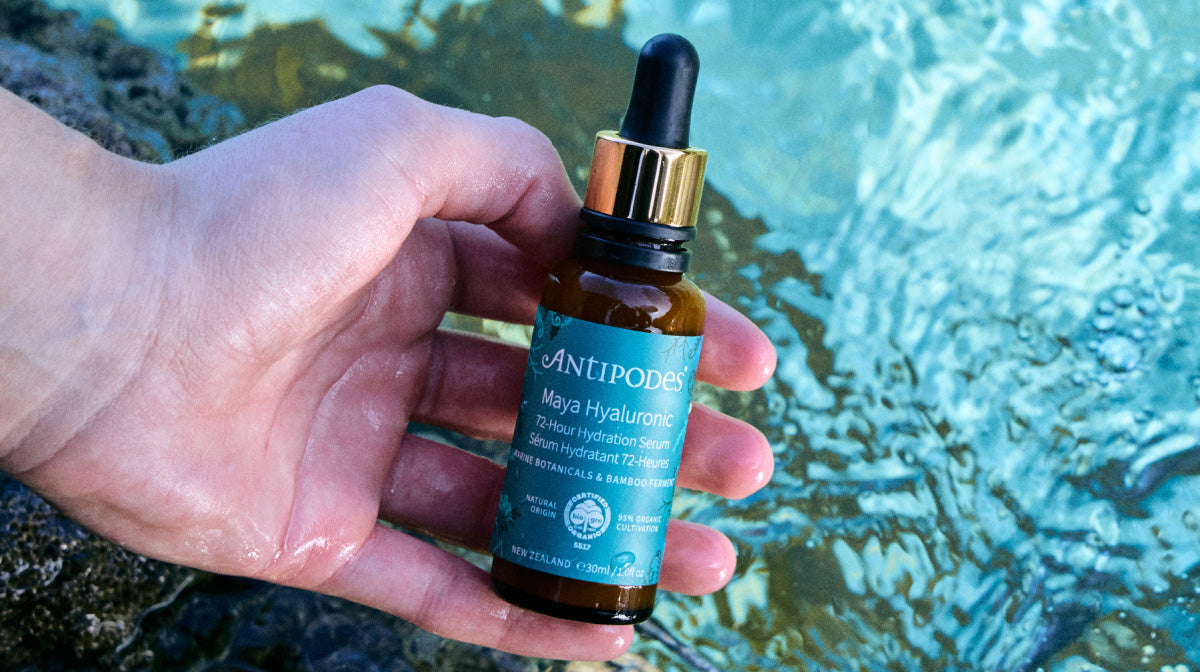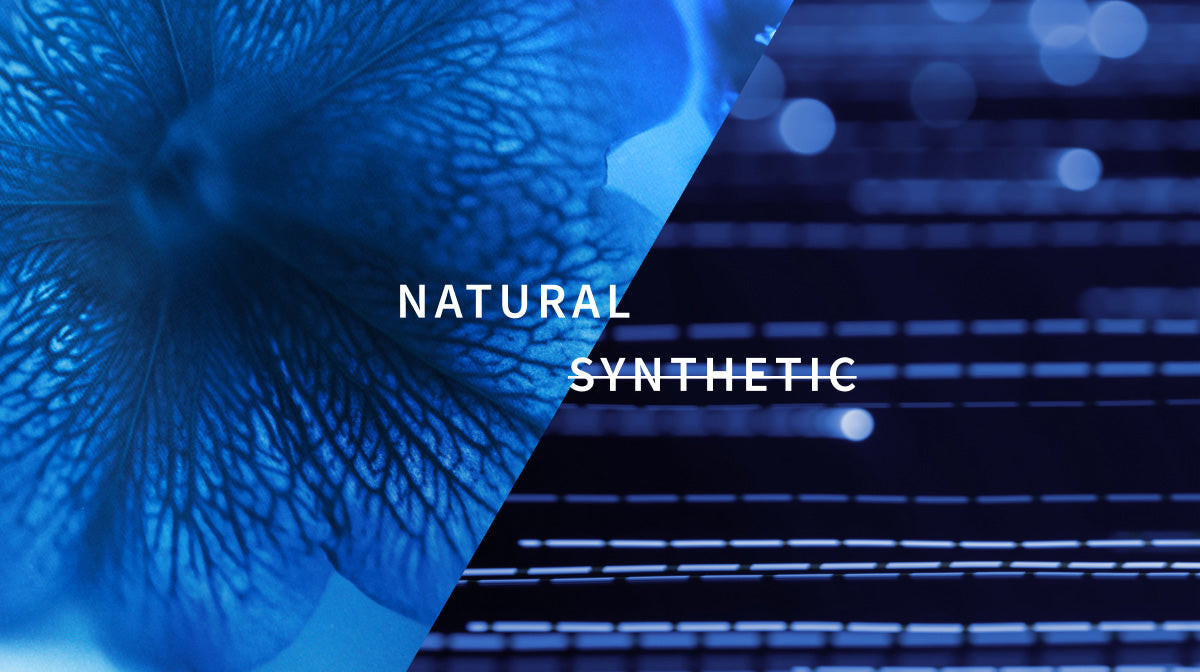Skin can develop pigmentation at any age – with dull skin, dark spots, and uneven skin tone along for the ride. Managing pigmentation is one of the best things you can do to keep your skin looking bright and healthy. But where do we start? Let nature lead the way.
What is pigmentation?
See any patches of blotchy or discoloured skin on your face, neck, or décolletage? That’s pigmentation. Pigmentation occurs when the body produces too much melanin – the pigment that is responsible for our skin tone, eye colour, and hair colour. It may look brownish or reddish, and appear as spots, patches, or blotches over the skin.
Skin pigmentation causes
Pigmentation happens naturally as we age. It can also be caused by sun exposure, hormonal changes, inflammation, pregnancy, and even certain medications.
How can I prevent pigmentation?
By living a healthy lifestyle, protecting your skin from the sun, and supporting the health of your skin with natural skincare for pigmentation, you can help to reduce and prevent unwanted discolouration. The key is to look for ingredients from nature when building your skincare routine. Full of natural antioxidant protection, these brightening botanicals and bioactives can help to not only diminish the appearance of pigmentation, but stop it in its tracks.
The best natural ingredients to reduce pigmentation
Peptides
Peptides are short chains of amino acids: the building blocks of proteins like collagen and elastin that support skin structure. Peptides have many functions. Some unique types of peptide help to block the synthesis of melanin, helping to prevent pigmentation and promote even, radiant skin.

They may be an innovative scientific ingredient, but that doesn't mean peptides are toxic. Diem Vitamin C Pigment-Correcting Water Cream features natural origin peptides, created from a fermentation process using sugarcane, water, and healthy bacteria.
Kakadu plum

Kakadu plum is rich in Vitamin C, an antioxidant that is critical to the health of skin because it helps to protect against the effects of free radical damage – one of the main causes of pigmentation in skin. Thanks to is exposure to extreme sunshine, the Australian Kakadu plum has developed high levels of antioxidants that help to defend against free radical attacks. Glow Vitamin C Brightening Serum is the best serum for pigmentation because it harnesses the benefits of Kakadu plum to help protect skin against oxidative stress* and prevent pigmentation from occurring.
Bakuchiol
This ancient Ayurvedic herb is known as a natural alternative to retinol thanks to its ability to help correct uneven skin tone and smooth skin texture, without the irritating side effects that retinol can have. Bakuchiol contains anti-inflammatory and antioxidant properties which make it the perfect ingredient to help minimise pigmentation. Both Glow Vitamin C Daily Serum and Diem Vitamin C Pigment-Correcting Water Cream utilise this special natural ingredient in their vegan formulations.

Peony flower
The roots of this special flower have long been used as a traditional remedy for skin pigmentation, especially to reduce brown spots and age spots. In a mask such as Halo Skin-Brightening Facial Mud Mask, peony has the potential to help inhibit melanin production and reduce pigmentation in the skin.
Vinanza® Grape & Kiwi
A powerful antioxidant compound from polyphenol-rich Vinanza® Grape seeds and enzyme-rich kiwi skin, Vinanza® Grape & Kiwi is clinically shown to improve skin appearance by targeting pigmentation**, making it a must-have in skincare for pigmentation. To discover the benefits of this ultra-clean ingredient from New Zealand, cleanse skin with Juliet Skin-Brightening Gel Cleanser and apply Kiwi Seed Gold Luminous Eye Cream to the delicate eye area.

*Scientifically shown to inhibit oxidative stress in human fibroblast cells in-vitro by up to 33% (Trinity Bioactives, 2021).
**Independent study, New Zealand Extracts (2012).
| diem-vitamin-c-pigment-correcting-water-cream-60ml |
| glow-vitamin-c-serum-with-plant-hyaluronic-acid-30ml |

